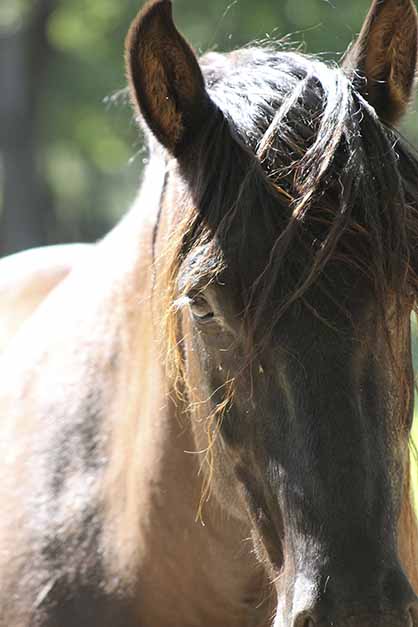Strange Behavior: Sleep Attacks in Horses
AVA Release
While not common in horses, sleep disorders and seizures can happen, and when they do, horse owners expect this type of strange behavior to be explained by something rare like a stroke or brain tumor.
Hosted by Equine Veterinarians Australia (EVA) next month, the Bain Fallon Memorial Lectures are part of the Australian Veterinary Association’s Knowledge Program. During the five-day conference, Dr Joe Mayhew from New Zealand’s Massey University will discuss the signs of sleep disorders and seizures in horses, which he says often leave owners baffled when they first notice them.
“True episodic events where an animal is totally normal between events are not so common in equine practice. However, they do occur, and when they do it can often be related to sleep disorders or recurrent seizures. As with most species that suffer from these neurological conditions, it can be difficult to make an accurate diagnosis, which is why video capture of the actual episodic event is a powerful tool in helping to pinpoint what is going on, and then develop a suitable treatment plan,” Dr Mayhew said.
Horses have been known to experience ‘sleep attacks’ where they show signs of excessive daytime sleepiness or random and uncontrollable episodes of falling asleep. Dr Mayhew says that varying breeds and crossbreeds have been affected and there is a wide range in the age and onset of signs.
“Signs of a sleep attack include drowsiness with hanging of the head, and buckling at the knees, to sudden and total collapse where some horses will fall and injure themselves, but usually get up quietly within seconds to a minute or so. It’s often in these cases that owners seek veterinary advice after they notice chronic traumatic lesions around the face, lips or knees, which the horse has suffered after falling repeatedly.”
“The number of sleep attacks horses can experience range from one attack every few weeks to more than 10 per day. In some cases, a horse may have experienced sleep attacks due to chronic sleep deprivation, and after the cause of the sleep deprivation has been identified and corrected, the sleep attacks then stop. Physical pain, moving to a new location or even loss of other horses in herds can all lead to sleep deprivation in horses,” Dr Mayhew said.
Much like sleep attacks, seizures are also not common in horses; however, foals are known to show signs of mild generalized seizures seen as jaw chomping, facial muscle tremors and jerky head movements.
“Repeated seizures can be genetic. Control of the seizures in these foals can be achieved though medication and fortunately patients appear to grow out of the condition. If an owner has a horse that is being treated for epilepsy, it’s important that the owner discuss riding safety with their veterinarian,” he said.
The Bain Fallon Memorial Lectures is being held at the Royal Pines Resort on the Gold Coast, 9-13 July 2017.











